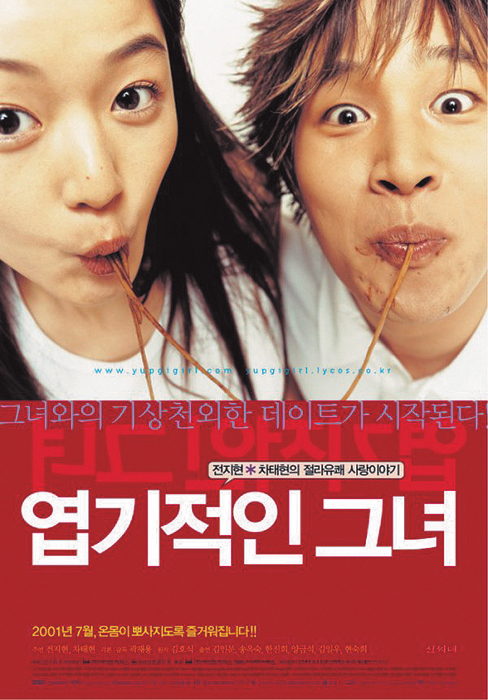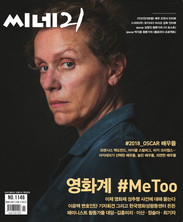일반적으로 얘기해서 영화와의 첫 교감은 제목을 통해 이루어진다. 비디오 가게나 영화제 카탈로그에서 제목을 쭉 살펴볼 때, 좋은 제목이라면 주의를 끌고 잡아주는 반면 나쁜 제목이나 지루한 제목의 영화는 아예 주목을 못 받는다. 이런 이유로 세계의 영화사들은 가능한 한 최선의 제목을 짓기 위해 엄청난 에너지와 돈을 들인다.
한국영화의 원제는 종종 아주 창의적이고 느낌을 잘 불러일으키는 것들이 있다. 또 외국어를 쓰는 여러 제목들을 보는 것도 재미있었다. 예를 들어, <오아시스>, <페이스>, <썸>, <리베라 메>, <내츄럴 시티>, <와일드 카드> 등. 이들은 영어로도 훌륭한 제목이다. 반면, 한국 세일즈사들이 해외 시장을 위해 선택한 영어 제목 중 <엽기적인 그녀>의 <My Sassy Girl>와 같은 것들이 있다. 이 제목들 모두가 터무니 없다하진 않겠다. 이중 결국 꽤 잘 된 경우도 있다. (놀랍게도 <My Sassy Girl>도 이런 경우가 됐다.) 그렇지만 외국인들이 진정한 좌절과 분노를 느끼면서 “이렇게 좋은 영화가 왜 이렇게 바보 같은 제목을 갖고 있냐?”고 물은 것이 한두 번이 아니다. 사실상 외국 관람객들 사이에 이런 것에 대한 원한이 꾀 높아지고 있으며, 해외에서 한국은 지상 최대의 유치한 제목들을 짓는 나라로 평판을 얻어가고 있다.
95%의 경우, 한국어 원제를 단순하고 적절하게 번역하기만 해도 해결될 것을, 담당 세일즈사들은 보통 완전히 다른 제목을 꾸며내는 것을 선호하는 것 같다. 특수한 선택들에 대해 불평하는 것보다, 어떤 것이 좋은 제목을 만드는지에 대해 몇 가지를 논하도록 하자.
최고의 작문 교과서들은 영어에서 강한 단어와 약한 단어들이 있다는 것을 가르칠 것이다. 동사가 가장 강한 단어고, 그 다음은 명사다. 유능한 시인이나 소설가의 작품을 보면 그들의 문장은 강하고 구체적인 동사와 명사들을 기반으로 구성됐다는 것을 볼 수 있을 것이다. (한국어는 이런 측면에서 다를 수 있다.) 작년 미국에서 개봉한 영화 목록을 보면, 제목들이 간결하다는 것, 그리고 강한 동사나 명사를 중심으로 하고 있다는 것을 볼 수 있을 것이다. 예를 들어 <Kill Bill>이나 <Troy> 등이 있다. 반면 형용사와 부사는 추상적이며, 약하고, 잊혀지기 쉽다. 한국영화의 제목들은 “wonderful,"이나 "beautiful," ”lovely" 같은 약하고 감상적으로 고지식한 형용사에 믿음을 거는 경향이 있다. 그 예로 <Wonderful Days>, <Too Beautiful to Lie (그녀를 믿지마세요)>, <My Beautiful Girl Mari (마리 이야기)>, <Lovely Rivals (여선생 vs 여제자)> 등이 있다. 제목을 더 재미있게 하거나 기억하기 쉽게 만들려는 것이었겠지만, 오히려 그 반대의 효과를 낳는다.
또한 한국 세일즈사들은 “my"란 단어에 집착하는 것 같다. 한국어에서 ”나의“란 단어가 멋있게 들릴지도 모르겠지만, 영어에선 제목에 그 단어를 아이러닉하게 쓰지 않는 이상 아마추어적으로 들리게 할 수 있다. 작년 ”뉴욕 타임스“지 평론에 다루어진 279편의 영화 중 ”my"란 단어를 제목에 쓴 작품은 단 한 편도 없었다. 한국은 반면 지난 3년 간 15편 정도를 생산해냈다. <My Little Bride (어린신부)>, <My Mother the Mermaid (인어공주)>, <My Teacher, Mr. Kim (선생 김봉두)>, 그리고 <My Boss, My Hero (두사부일체)>는 빙산의 일각이다. 첨언하자면 <엽기적인 그녀>를 리메이크하는 할리우드 영화사는 제목을 <My Sassy Girl>에서 <Sassy Girl>로 바꾼다고 들었다.
장기적으로 봤을 때 한국 세일즈사들이 영화 제목을 지을 때 외국에 근거지를 둔 영화 마케팅사의 조언을 구하는 것도 도리에 맞을 것이다. 훌륭한 영화에 끔찍한 제목의 족쇄를 채우는 것은 모네나 르누아르의 그림을 싸구려 플라스틱 액자에 넣는 것과도 좀 비슷하다. 한국영화를 추천할 때 사람들은 “제목이 유치하단 건 알지만, 영화는 훌륭하니까 꼭 봐 달라”고 얘기해야만 할 때가 많다. 제목 자체로 영화를 알 수 있게 한다면 얼마나 좋을까?
A Rose By Any Other Title
Generally speaking, our very first interaction with a film is with its title. As we scan titles in a video store or in a festival catalogue, a good title grabs hold of us and commands our attention, while films with bad or simply boring titles often never even get noticed. For this reason, film companies around the world devote great energy and cash to naming their films with the best possible title.
The original titles of Korean films are often quite creative and evocative. It's also been interesting to see the many titles that use foreign words: Oasis, Face, Some, Libera Me, Natural City, Wild Card. These are all excellent titles in English, too. However, there are also the English titles chosen by the local sales companies for overseas markets, like for example My Sassy Girl for 엽기적인 그녀. I won't say that all of them are terrible... some have turned out to work quite well (like, surprisingly, My Sassy Girl). But it's not merely once or twice that I've heard foreigners ask me, with genuine frustration and anger, "This is such a good movie, why does it have such a stupid title?" In fact, the level of resentment among foreign viewers is quite high, and Korea is gaining a reputation abroad as the country with the silliest (유치한?) titles on earth.
In 95% of cases, this would be solved by a simple, competent translation of the Korean title, but the sales companies in charge usually seem to prefer dreaming up a completely different title. Rather than complain about specific choices, let me make some arguments about what makes a good title.
The best textbooks on writing will teach that in English, there are strong words and weak words. Verbs are the strongest, followed by nouns. Look at the work of any accomplished poet or novelist, and you'll see that their writing is structured around strong, concrete verbs and nouns (Korean may be different in this regard). If you look at a list of the films released in the US last year, you'll see that the titles are concise, and revolve around a strong verb or noun: Kill Bill or Troy, for example. Adjectives and adverbs, on the other hand, are abstract, weak, and easy to forget. The titles of Korean films tend to put all their faith in weak, sappy adjectives, like "wonderful," "beautiful," or "lovely": Wonderful Days, Too Beautiful To Lie (그녀를 믿지마세요), My Beautiful Girl Mari (마리 이야기), Lovely Rivals (여선생 vs 여제자). They are trying to make the title more exciting or memorable, but instead they achieve the opposite effect.
Korean sales companies also seem to be obsessed with the word "my". "나의" may sound elegant in Korean, but in English, putting it into a title can make it sound amateurish, unless it's used ironically. Of the 279 films reviewed in the New York Times last year, not a single one used "my" in its title. Korea, meanwhile, has produced around 15 in the past three years – My Little Bride (어린신부), My Mother the Mermaid (인어공주), My Teacher, Mr. Kim (선생 김봉두) and My Boss My Hero (두사부일체) are only the tip of the iceberg. Incidentally, I heard that the Hollywood company that is remaking 엽기적인 그녀 will change the title from My Sassy Girl to Sassy Girl.
Long-term, it would really make sense for local sales companies to seek the advice of foreign-based film marketing companies when titling their films. Shackling a great film with an awful title is sort of like setting a painting by Monet or Renoir into a cheap plastic frame. When recommending Korean films, people are often forced to say, "I know this is a silly title, but it's an excellent film, please watch it." How nice it would be if the titles spoke for themselves.



